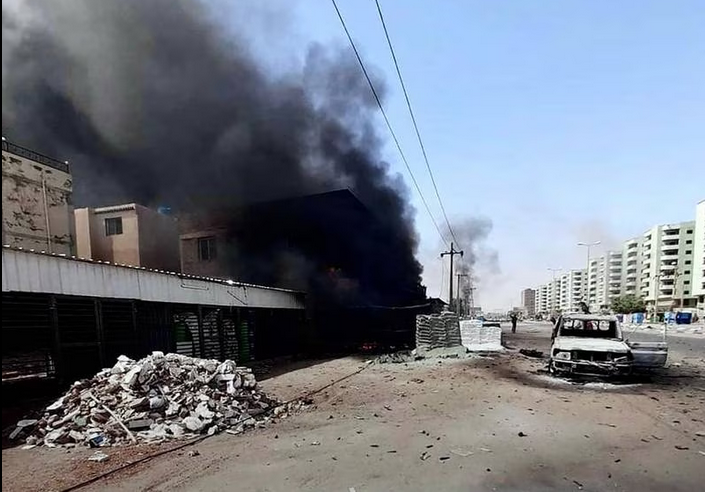
More than 530 people had been flown to safety on six flights as of Wednesday night
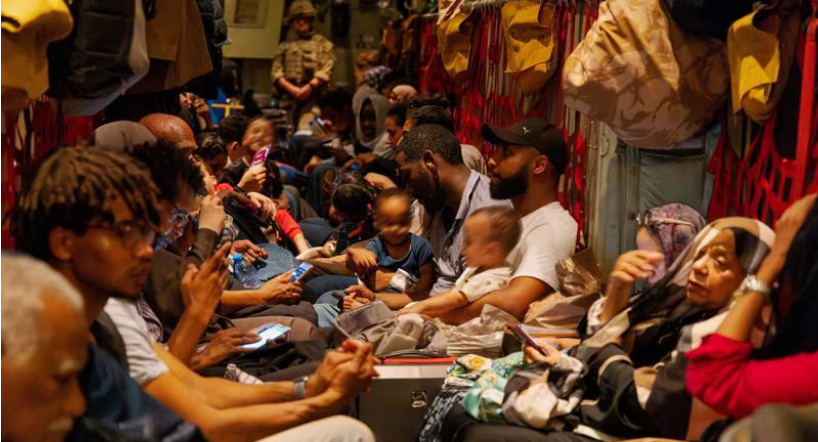
The UK Foreign Secretary is urging British citizens in war-torn Sudan to make their way to the airfield “as soon as possible” as evacuation flights can no longer be guaranteed once the ceasefire expires.
James Cleverly said more than 530 people had been flown to safety on six flights as of 9pm on Wednesday.
Of those, 361 were UK citizens and the remaining 175 were of other nationalities, including dependents.
But Mr Cleverly said the UK “cannot guarantee” how many further flights will depart after the ceasefire ends on Thursday evening.
He urged UK citizens who wish to leave Sudan to make their way to the Wadi Saeedna air strip “as soon as possible”.
On Sky News on Thursday morning, he said: “We cannot predict exactly when that ceasefire ends, but what we do know is that it will be much harder, potentially impossible [to run evacuation flights].
“So what we are saying to British nationals is if you’re hesitant, if you’re weighing up your options, our strong, strong advice is to go to Wadi Saeedna whilst the ceasefire is up and running.
“There are planes that have capacity. We will lift you out, and we are not able to make those same assurances once a ceasefire is ended.”
SUDAN CONFLICT LATEST PHOTOS
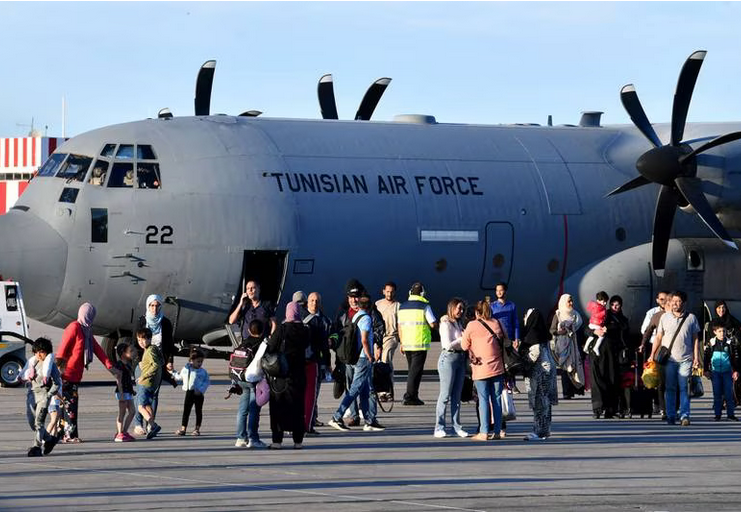
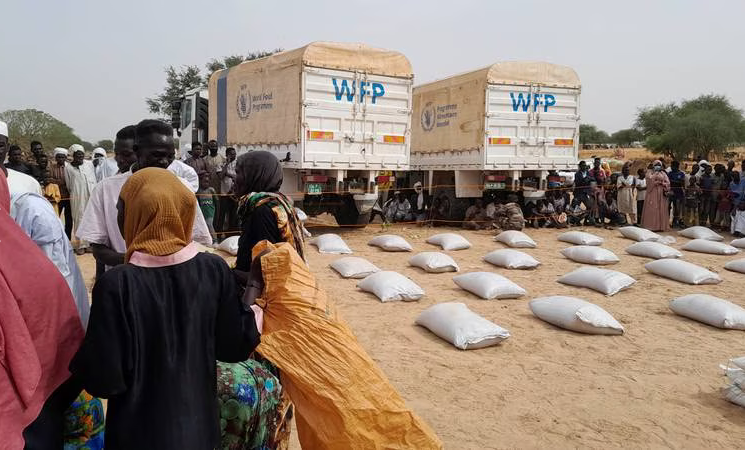
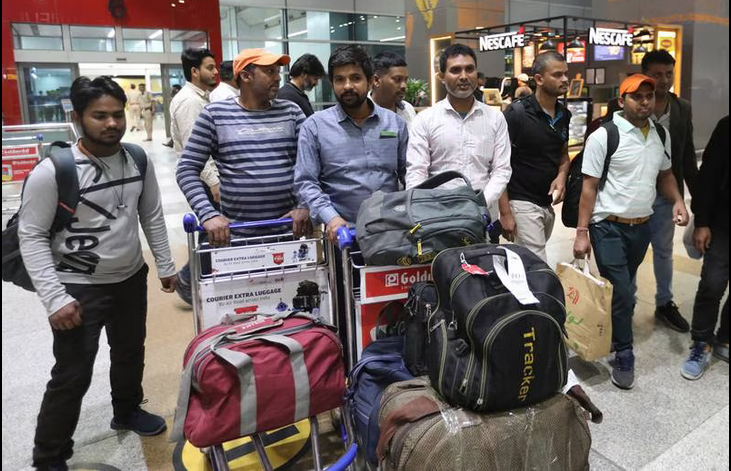
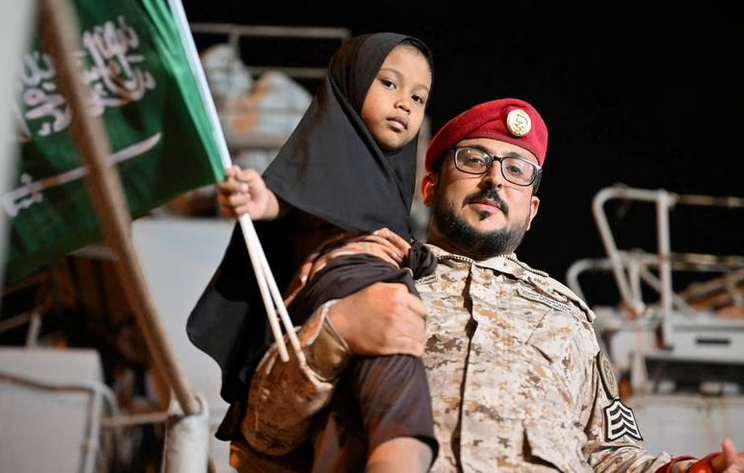
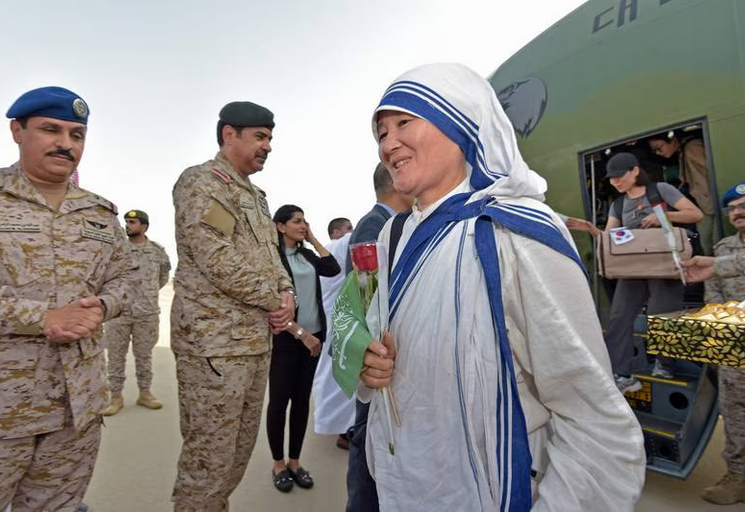
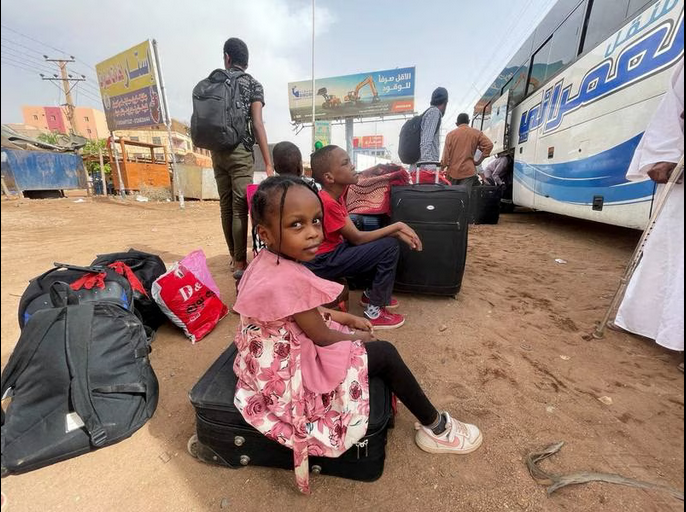
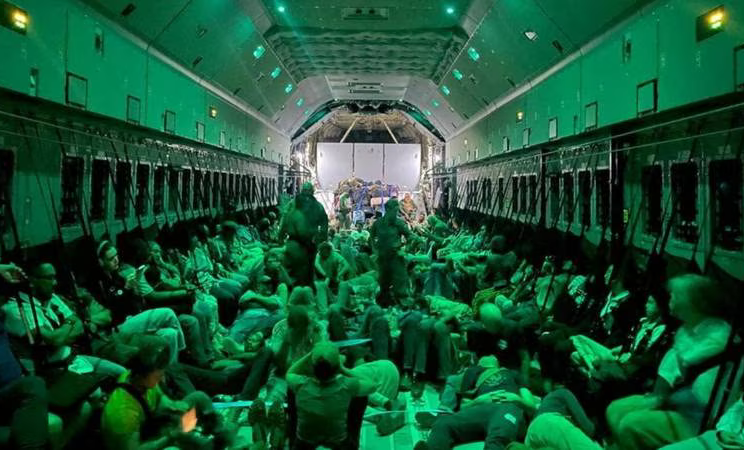

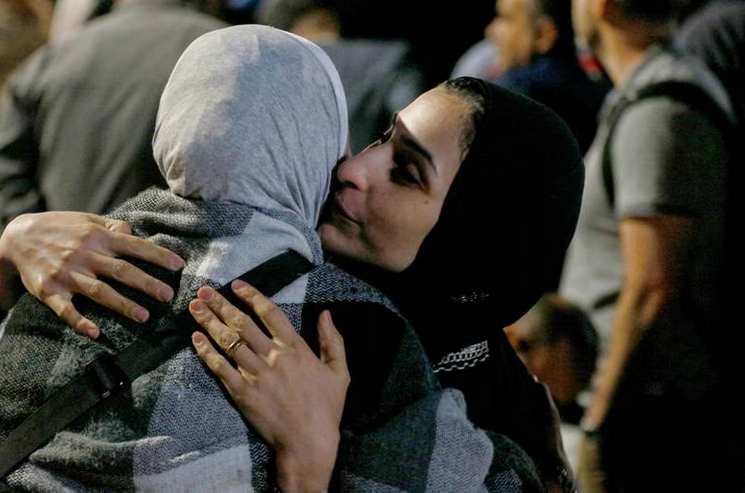
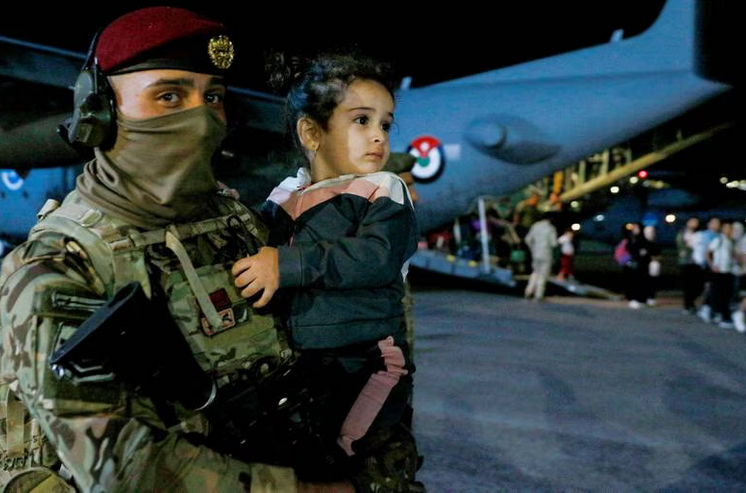
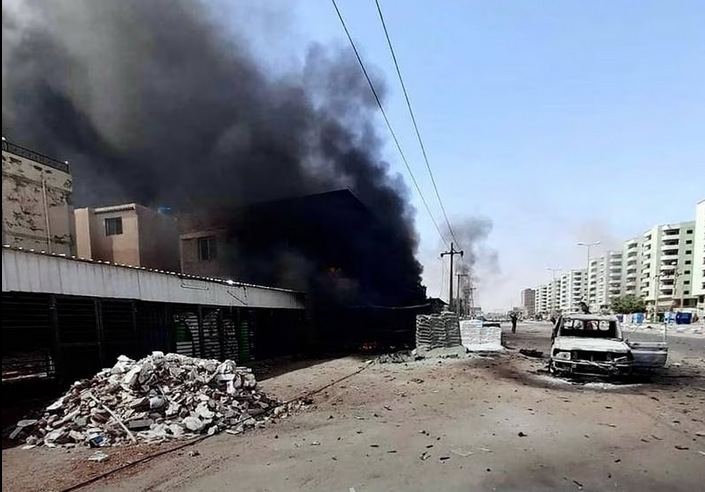
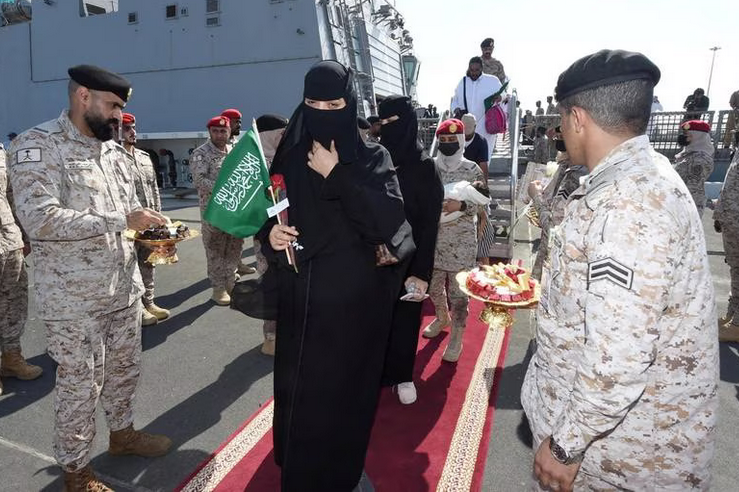
Asked whether the UK may have to leave some of its citizens behind, Mr Cleverly said: “Well … as a business it is really, really difficult to predict what might happen over the next couple of days.
“Now is the time to move because when this ceasefire ends, my ability to give the kind of limited assurance that I can give now might go and we might not be able to evacuate so please, please, please, get to the airfield today. You can come out. We have capacity, we have airframes.”
Former British ambassador to Sudan, Dame Rosalind Marsden, told Sky News talks are ongoing to extend the halt in fighting.
“What we’re looking at this morning is that this is an initiative by the local regional organisations to see if they can get the temporary truce extended by an another 72 hours that’s been led by South Sudan,” she said.
“The important thing there is to make sure that all the international actors and regional actors are co-ordinating together to be able to exert maximum pressure.”
Dame Marsden said the current ceasefire was “faltering”. But moves were under way by the US to negotiate a permanent ceasefire.
“The current ceasefire is sort of faltering, but at least there’s a lull in fighting, rather than advancing,” she said.
“[There have] been calls in the UN Security Council yesterday, especially from the United States to set up a committee to try to negotiate a permanent ceasefire. But it’s also important to make sure that the voices of civilian actors the pro-democracy, civilian leaders are also listened to.”
Africa minister Andrew Mitchell said the evacuation mission was “going very smoothly” with “no great backlog, no great congestion” at the air strip.
But, he said, “we are absolutely in the hands of the ceasefire”.
Mr Mitchell told Sky News: “We are doing everything we can to make sure it’s prolonged and on the wider stage, too, trying to negotiate for a longer ceasefire, because if the combatants don’t lay down their arms and return to barracks, there’s going to be a humanitarian catastrophe in Sudan.”
He said that “at the moment those safe and legal routes don’t exist” for refugees from Sudan to claim asylum in the UK.
Only British passport holders and immediate family members with existing UK entry clearance are being told they are eligible to be flown out.
But Alicia Kearns, the Tory chair of the Foreign Affairs Select Committee, said elderly people dependent on children who are British citizens should also be admitted.
She told the BBC: “In the same way we treat children who are dependent on their parents, we should respect that some elderly people are dependent on their children.
“It is important that we are bringing people out who would otherwise be left destitute and really vulnerable.”
___
Source here
